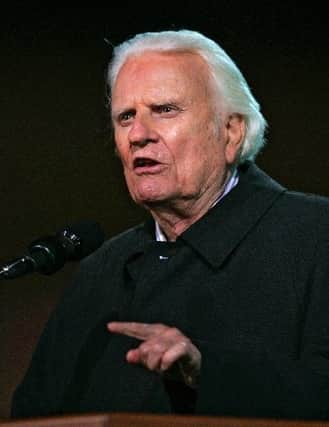Quality of sermon affecting church attendance, says new poll


The sermon, in both its application of Biblical scripture and relevance to life, takes ultimate priority for both Protestant and Roman Catholic worshippers across America, according to a Gallup poll.
Gallup surveyed 1,500 US adults in March, collating statistics from both the religious and non-religious about their attitudes to attending religious gatherings.
Advertisement
Hide AdAdvertisement
Hide AdCompared to Roman Catholics, Protestants, or those who identify as simply Christian, are more likely to value the role of the sermon in church. Eighty-three per cent of Protestants said “sermons that teach about scripture” were a major factor in church attendance, while for Roman Catholics it was 62 per cent.
The lowest-ranked factor for both groups was choir or other spiritual music: 44 per cent of Protestants called it a major factor, and just 29 per cent of Roman Catholics said the same. The poll surveyed those who attend church monthly.
Gallup observed: “Overall, Catholics rate none of the factors as more important reasons for attending than do Protestants, suggesting that the latter group - with dozens of denominations and branches of Protestantism to choose from - may be more attuned to specific dynamics of what they prefer in their church experience than Catholics.”
In a more general survey of Muslims, Jews and Christians, three in four of those polled said that the sermon, either one that connects religion to one’s own life, or teaches about scripture, was a major factor affecting church attendance. The next most significant factor was “spiritual programmes geared toward children and teenagers”, which 64 per cent of those polled said was a priority. The least significant ‘major factor’ was quality worship music (38 per cent), 36 per cent of those polled said it was a minor factor.
Advertisement
Hide AdAdvertisement
Hide AdGallup also polled those who no longer attend church, but used to, on why they left. There was no predominant, pervasive reason for not attending, but the most cited reason was preferring to worship alone (44 per cent).
Thirty-six per cent of those asked said their dislike of organised religion was a major factor. Other major factors included not finding the right church (22 per cent), or not having time to attend (19 per cent).
Sixteen per cent said they did not like being asked for money when they went to church. The least cited major factor was feeling unwelcome at church (six per cent).
Gallup concluded from its study: “While social benefits are clearly important to majorities of those who worship regularly, what most motivates them to attend is learning more about the tenets of their faith, as well as connecting that faith to their lives.”
Advertisement
Hide AdAdvertisement
Hide Ad* Evangelical Protestantism in the United States has a long tradition of outstanding preachers, with Dr Billy Graham arguably the most famous and prolific. Other noted American preachers have included Dwight L. Moody, William Ashley ‘Billy’ Sunday, Jonathan Edwards, Bob Jones Sen., Pat Robertson and Rick Warren.